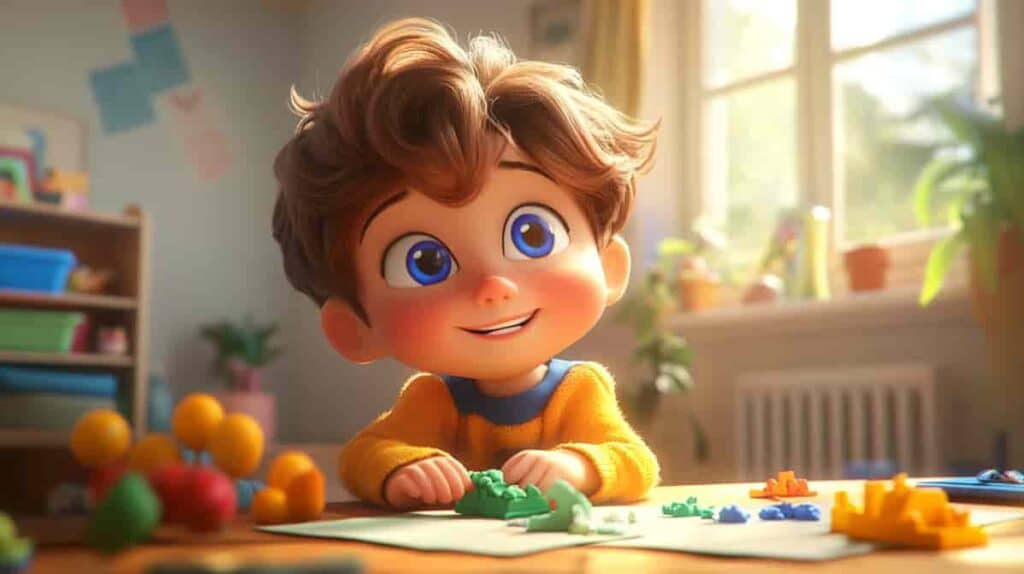Montessori Schools: A Child-Centered Educational Paradigm
Education has always been a field of innovation and deep reflection. Among the many educational methods that have developed over the years, that of Maria Montessori stands out for its unique and revolutionary approach.
Created in the early 20th century, the Montessori method has gained worldwide popularity, attracting parents and educators looking for a more respectful approach to children's natural development. But what makes this method so special? This article explores the core principles of Montessori schools and highlights the importance of Montessori materials in this context.
The Fundamental Principles of Montessori Schools
The core of the Montessori method is the idea that each child is a unique individual with enormous potential. Maria Montessori, an Italian physician and educator, observed that children have an innate thirst for learning and are capable of self-learning when placed in a prepared environment rich in stimulation.
Unlike the traditional educational approach where the teacher plays a central role and directs the learning process, the Montessori method emphasizes the child as the main actor in his development.
Self-learning and autonomy: In a Montessori school, children are encouraged to explore, experiment, and discover for themselves. Teachers, called “guides,” play a facilitator role, observing the children and providing them with the materials needed to meet their interests and needs. This approach promotes autonomy, self-confidence, and independence.
Respecting the child's rhythm: One of the most important aspects of the Montessori method is respecting each child's pace. Unlike the traditional system where all children are expected to follow the same curriculum at the same pace, the Montessori method recognizes that each child develops differently. Students are not constrained by a rigid schedule but progress at their own pace, delving into concepts until they are ready to move on to the next stage.
A prepared environment: The Montessori environment is carefully designed to be both stimulating and accessible. Classrooms are organized to foster independence, with spaces dedicated to different activities: language, mathematics, science, art and practical life. Everything in this environment, from the furniture to the tools, is adapted to the size of the children, making them masters of their space.

The Importance of Montessori Materials
A central element of Montessori pedagogy is the specific educational materials, designed to encourage learning through experience. Montessori materials are much more than just a set of educational tools: they are a bridge between the child and knowledge, allowing for concrete, sensory and self-correcting learning.
For information, if you wish learn more about Montessori materials, you can discover the SMYLES store which offers a wide range of products that stem from this teaching.
Characteristics of Montessori Material:
- Concrete and Sensory: The materials are designed to allow children to understand abstract concepts in a concrete way. For example, Montessori beads used to teach mathematics allow children to physically manipulate quantities, making mathematical concepts more tangible.
- Self-correcting: One of the unique aspects of Montessori materials is that they are self-correcting. This means that the child can identify mistakes on their own without adult intervention. For example, puzzles used to teach geography have pieces that only fit together in one correct way, allowing the child to self-correct.
- Aesthetic and attractive: Montessori materials are designed to be attractive and stimulate curiosity. They are usually made from natural materials like wood, and are often colorful to attract children's attention. This aesthetic helps make learning enjoyable and engaging.
- Progressive: Each set of materials is designed to introduce simple concepts first, then allow for more complex explorations as the child masters the activity. This progression helps children develop their understanding in depth.
Examples of Montessori Materials:
- The pink building blocks: Used to teach the concepts of size and volume, these blocks allow children to develop fine motor skills while learning to differentiate dimensions.
- The rough letters: They are used to teach the alphabet and pre-writing. The child traces the letters with his fingers, thus associating the tactile sensation with the sound of each letter, which facilitates learning to read.
- The red and blue bars: Used for learning mathematics, these bars of varying lengths help children visualize and understand the concepts of quantity and numbering.
The Impact of the Montessori Method
Montessori schools have proven to promote the harmonious overall development of the child. Students who graduate from the Montessori system are often described as autonomous, curious, and able to think critically. In addition, by respecting individual rhythms and providing a rich and stimulating environment, this method helps to strengthen children's self-confidence and self-esteem.
Research also shows that children from Montessori schools are often better prepared to solve problems and work collaboratively. They develop a positive attitude toward learning that lasts throughout their lives.
Conclusion
Montessori schools offer a respectful educational approach, focused on the natural development of the child. By emphasizing self-learning, autonomy and respect for individual rhythms, this method allows children to flourish at their own pace. Montessori materials play a crucial role in this approach, providing children with the tools necessary to explore, discover and understand the world around them. Beyond simply transmitting knowledge, Montessori schools develop confident, curious individuals who are able to adapt to a constantly changing world.
To learn more about: montessori schools
